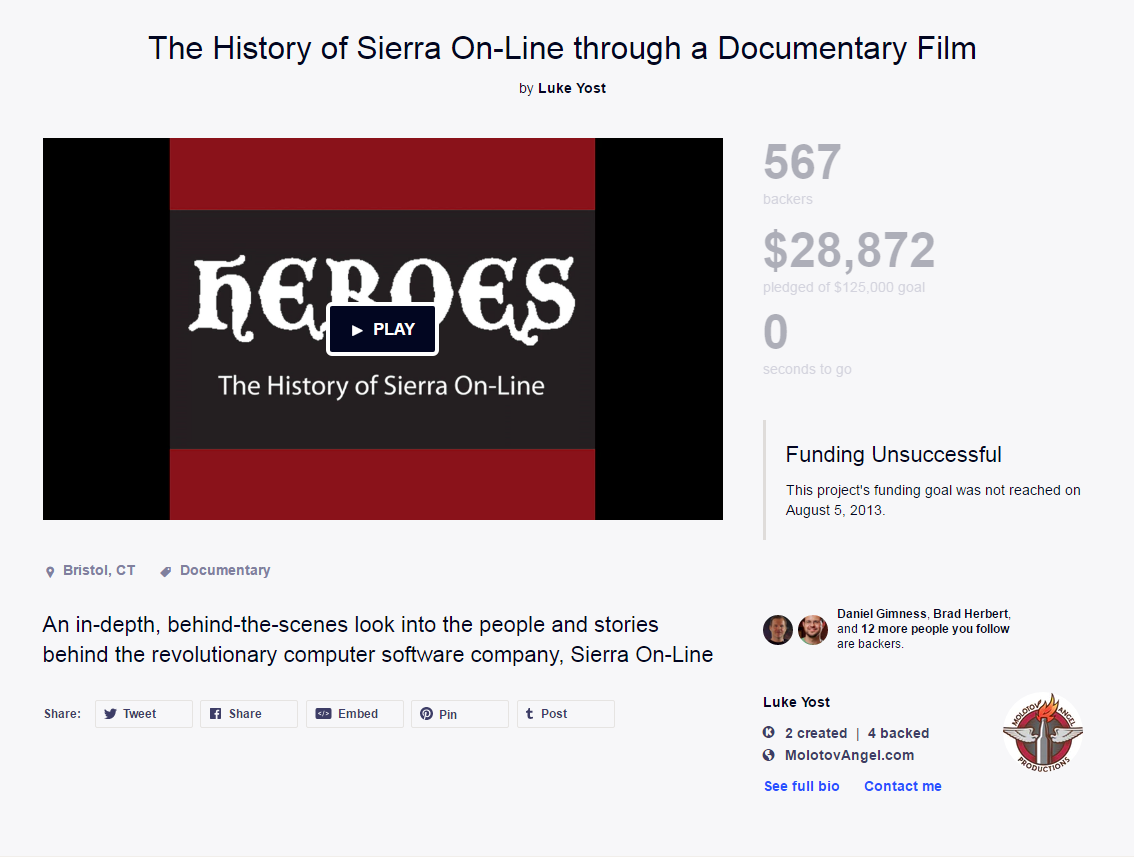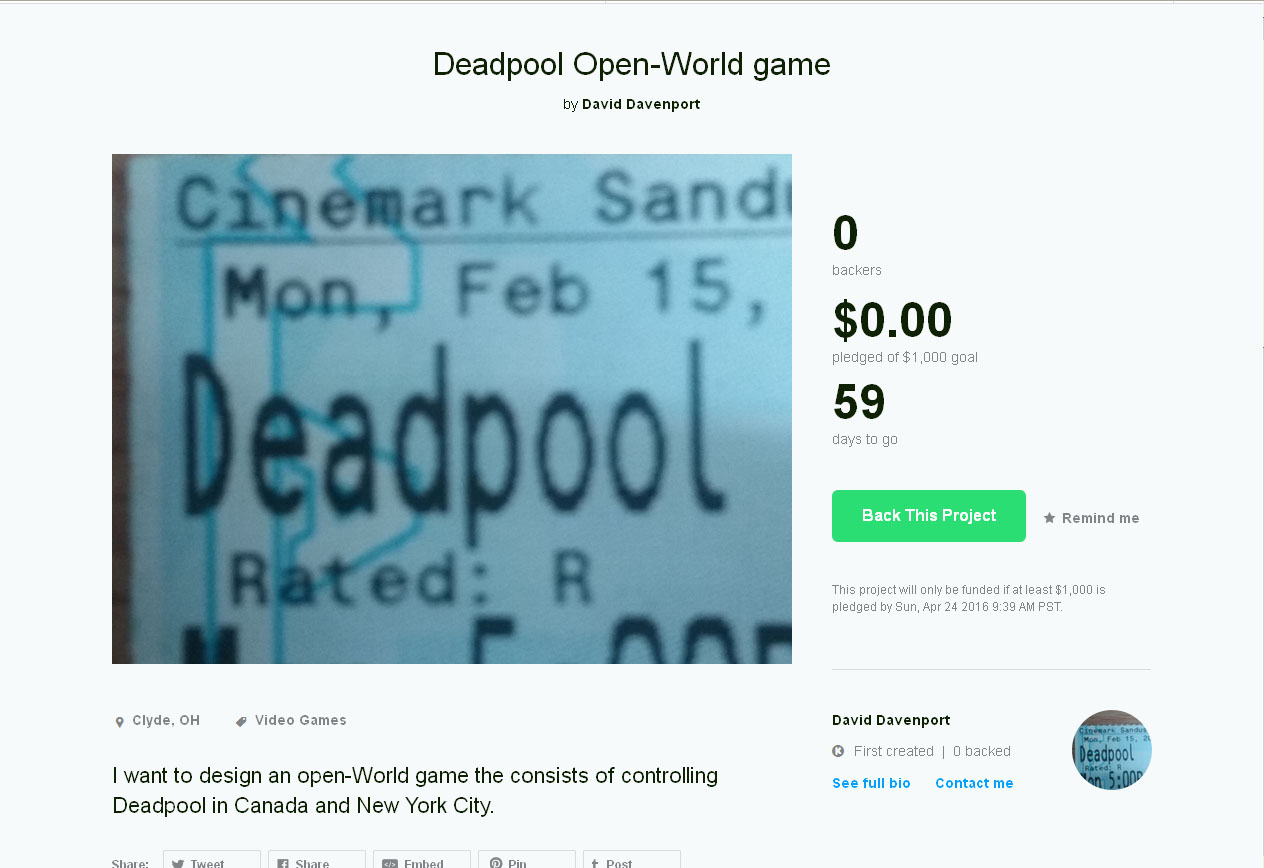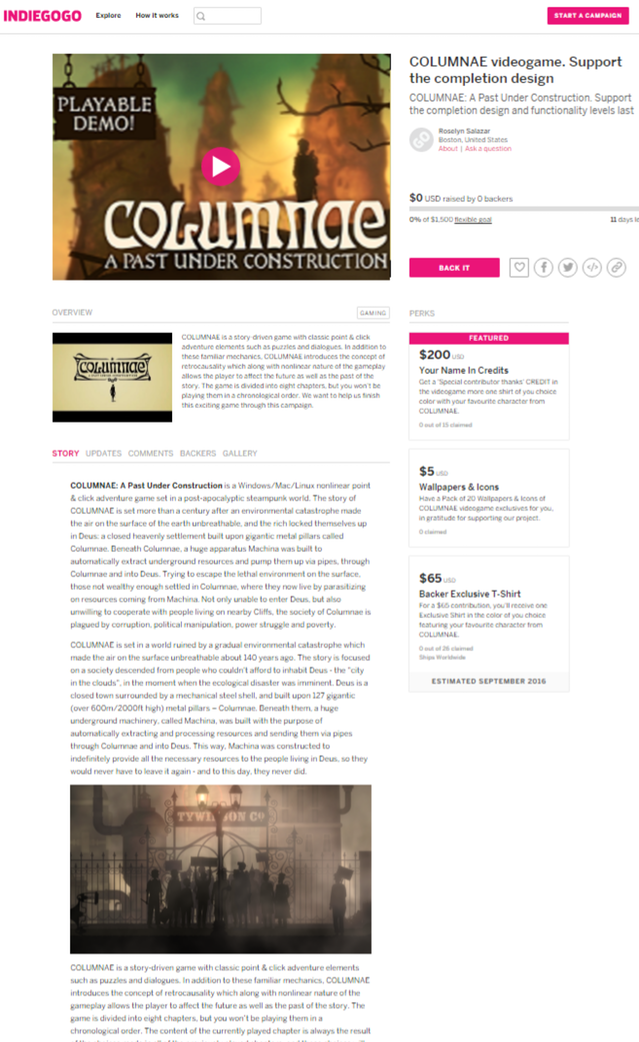Nothing’s worse than seeing a Kickstarter and getting fooled by someone just out for a quick buck. Most crowdfunding projects are legit ways to get an idea off the ground, but there are a number of “red flags” to watch out for. In this edition of Kickstarter Primer I’ll be taking a look at scams and other problem projects. Let this video be a guide for what to stay away from.
 The video covers several examples of either scams or at least poorly planned campaigns. The most important thing to look for is just how willing the creators are to talk with their fans. If they keep quiet, are hostile and defensive, or deaf to the pleas of others then that’s a sure sign they’ll do the same long after. Communication is always the key thing here, and the silence can be quite deafening.
The video covers several examples of either scams or at least poorly planned campaigns. The most important thing to look for is just how willing the creators are to talk with their fans. If they keep quiet, are hostile and defensive, or deaf to the pleas of others then that’s a sure sign they’ll do the same long after. Communication is always the key thing here, and the silence can be quite deafening.
I’ve seen too many projects, both scam and legit, crash and burn whenever the project creator refuses to listen or talk to backers. It’s never a good sign when all you get is silence, and it’s even worse when there aren’t any updates coming through during funding. Having an argumentative and defensive creator is just as bad, as being thin-skinned during funding means that they’ll be thin-skinned during development.
 There are many more things to watch out for so that you don’t give your money away to undeserving projects. Of obvious import are the projects that try to make a game based on a popular franchise yet don’t have the rights to do so. There’s a reason why we cover games like this. If Kickstarter doesn’t suspend these projects then they should. Most don’t make it, but there have been a few that still do. The sad fact of the matter is that these rights infringement campaigns are way too common these days.
There are many more things to watch out for so that you don’t give your money away to undeserving projects. Of obvious import are the projects that try to make a game based on a popular franchise yet don’t have the rights to do so. There’s a reason why we cover games like this. If Kickstarter doesn’t suspend these projects then they should. Most don’t make it, but there have been a few that still do. The sad fact of the matter is that these rights infringement campaigns are way too common these days.
It’s not always easy to spot a scam campaign, either. Sometimes laziness makes an otherwise legit game look bad. Other times, we discover a cleverly disguised scam campaign as looking like an actual game. People have gotten burned on the latter, which has started to give Kickstarter a bad name. Having almost nothing to show off is a sign of laziness, too. If a project creator is lazy during the funding process, then what’s to stop them from being lazy during production?
 The final red flag that I discuss are the skeeziest scammers, those that copy an existing campaign onto another site in the hopes of getting a quick buck. These not only hurt crowdfunding in general but also the actual game itself. These aren’t always easy to spot, but when they are the site in question is usually quick about taking action.
The final red flag that I discuss are the skeeziest scammers, those that copy an existing campaign onto another site in the hopes of getting a quick buck. These not only hurt crowdfunding in general but also the actual game itself. These aren’t always easy to spot, but when they are the site in question is usually quick about taking action.
I cover examples in the Kickstarter Primer video, but if you take one thing away it’s this. If something seems off then do your research. See what others are saying and make your decision based off of what you’ve learned. If your gut is telling you to walk away then do so. Don’t throw your money away.
https://www.youtube.com/watch?v=sv0UcFN8sHU




[…] I hate drawing attention to such clear scampaigns. I find it disrespectful to actual indie developers. People who’ve put time and effort into their […]